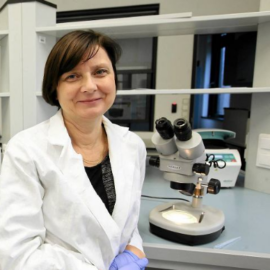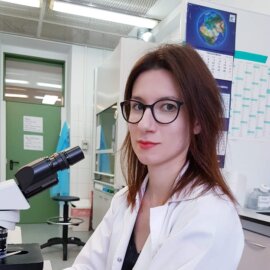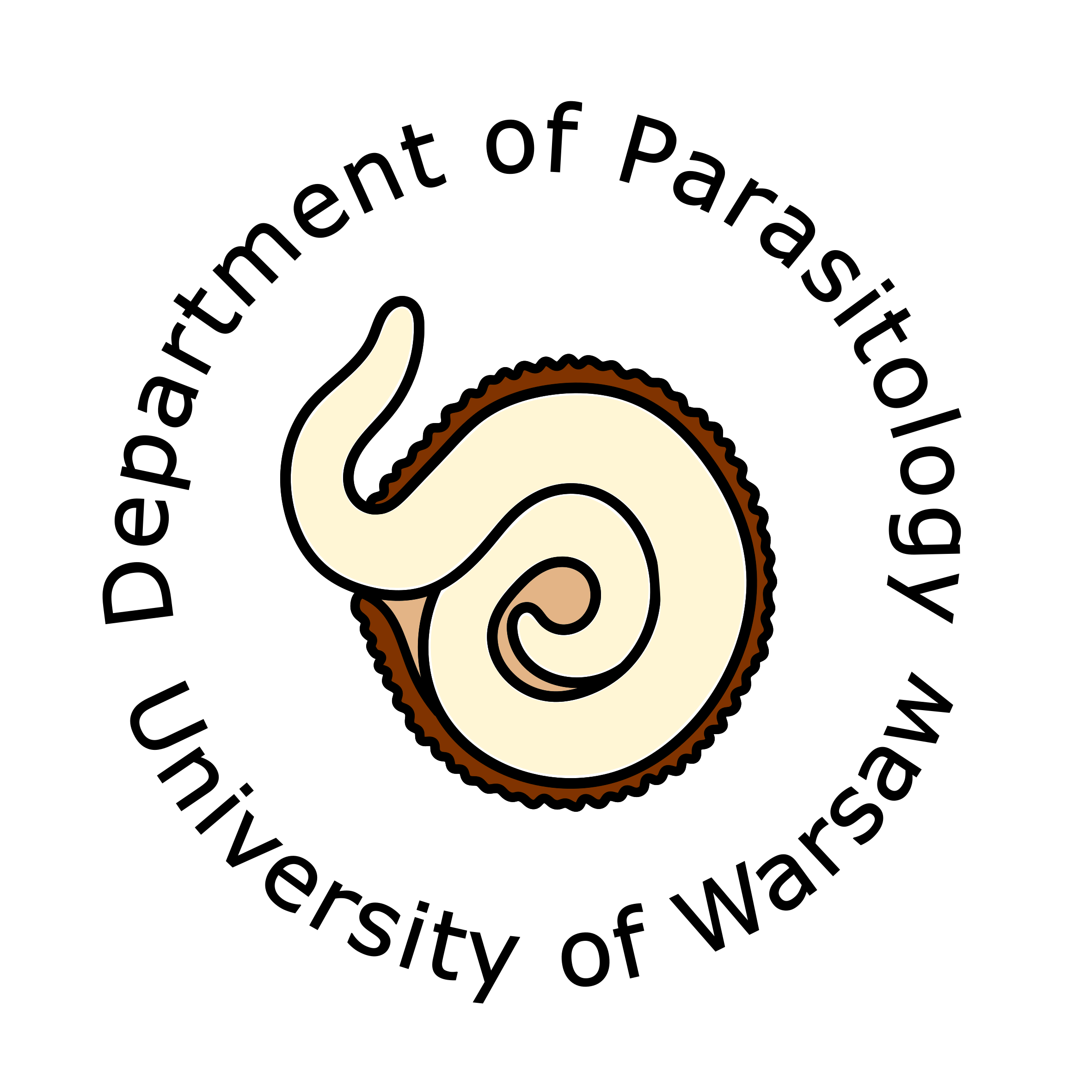People
Head

Prof. DSc. Maria Doligalska, Head of Department
My research includes experimental parasitology and immunoparasitology. These concern the invasion of the intestinal nematodes Trichinella spiralis, Heligmosomoides polygyrus, Toxocara cannis or Nippostrongylus brasiliensis in rodents. Such a parasite-host model system allowed us to understand the regulatory and suppressive mechanisms induced by parasites. Studies of immunological indicators in sheep infected with Trichostrongylidae nematodes expanded the recognition of the level of interactions from molecular to population level.
The achievement of my research and studies performed under my direction was the identification of different mechanisms of nematode persistence in the host, involving the role of different populations of T lymphocytes, as well as apoptosis and anti-inflammatory cytokines, including TGF-beta. Inhibition of systemic inflammation in chronic invasions was considered in the aspect of autoimmune disease therapy. Molecular and informatics analysis identified specific proteins with potential properties to reverse symptoms of inflammatory bowel disease and multiple sclerosis cast in mice. Proteomic studies have identified a fraction of parasite antigen proteins containing factors responsible for inhibiting the activation of immune response cells and modifying macrophage activity in the tumorigenic process.
One of the compounds which are found in parasites and can modify the course of the immune response is chitin. Increased deposition of chitin chains in the brain of aging mice with induced inflammation was observed during chronic invasion of Heligmosomoides polygyrus. Derivatives of this polysaccharide may facilitate parasite escape from host immune control. Chitosan was found to inhibit the activation of innate response cells in mice infected with Trichinella spiralis. These results prompt a cautious interpretation of the effects of chitosan, commonly used in regenerative medicine.
The drug resistance of parasites that contributes to economic losses in the production of healthy food was the trigger for research on the antiparasitic effects of naturally derived compounds. Selected saponins of marigold and oat have been found to damage mitochondria and microtubules in parasite cells. The effect of saponins is similar as that of currently used host-toxic drugs.
The latest work carried out by students under my supervision concerns the antiparasitic effect of silver nanoparticles, plant-derived polyphenols and saponins, and chitosan on the growth of axenic cultures of Acanthamoeba amoebae.
ORCID
Researchgate
Scopus ID
Staff

DSc. Małgorzata Bednarska, adjunct
Parasitic infections in patients with congenital and acquired immunodeficiencies with a special focus on unicellular parasites. Understanding and developing different diagnostic routes to detect specific groups of micropathogens that pose a threat to human health. Free-circulating DNA as an effective biomarker for the detection of parasitic infections especially in very low-intensity invasions or in the early phase of infection.
ORCID
Researchgate
Scopus ID

DSc. Renata Welc-Falęciak, associate professor
Genetic diversity of pathogens in Ixodes ricinus ticks and their hosts, including humans of different immunological status; assessing the risk of tick borne infections via blood transfusion; the role of the tick microbiome and co-infection on the effectiveness of pathogen transmission on the tick-human pathway; epidemiology of parasitic diseases.
ORCID
Researchgate
Scopus ID

PhD Katarzyna Goździk, adjunct
Epidemiology of parasitic protozoa of Apicomplexa, Neospora caninum and Toxoplasma gondii, studies on genetic diversity of N. caninum isolates, molecular identification of protozoa and proteomic identification of immunoreactive protozoan proteins. Material for the study is protozoa from in vitro cultures.
Identification and selection of immunoreactive proteins of nematodes and protozoa maintained in in vitro culture treated with naturally derived compounds with therapeutic potential.
ORCID
Researchgate
Scopus ID
PhD students

MSc Julia Koczwarska, PhD student
A graduate of Master's degree in Biology at the Faculty of Biology, University of Warsaw. As part of her PhD, she is studying the impact of co-infection on the prevalence of Borrelia spirochetes in Ixodes ricinus ticks and the success of spirochete transmission on the tick-human pathway. In her work, she uses molecular biology techniques (PCR, Real-Time PCR, droplet digital PCR, RFLP).
ORCID
Researchgate
Scopus ID
